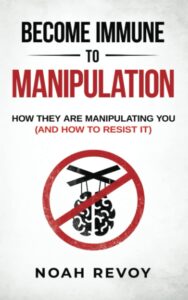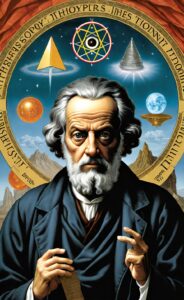In today’s political landscape, it is not uncommon to see individuals putting their leaders on a pedestal and blindly following their every word and action. This phenomenon, known as political hero worship, may seem harmless at first glance, but upon closer examination, it reveals a troubling truth. Research suggests that those who engage in this type of behavior tend to have lower levels of intelligence.
Defining Political Hero Worship
Political hero worship is characterized by an intense admiration for a specific political figure, often viewing them as flawless and superior beings. This extreme reverence can take several forms, such as undying support for all actions and decisions taken by the politician, disregarding any criticisms directed towards them, or developing an unwavering belief that the chosen leader is the only one capable of rectifying the country’s predicaments.
This kind of reverence often ignores the reality that politicians, like every human being, are fallible and can make mistakes. Blind loyalty can cloud judgment, obstructing objective assessment of the politician’s actions and policies. In the worst cases, this uncritical adoration can lead to the dismissal of any opposing views or constructive criticism, bolstering the mistaken belief in the politician’s infallibility.
Link Between Politician Worship and Low Intelligence
Drawing a direct correlation between an individual’s intelligence quotient and their propensity to idolize political figures may seem unkind. Nevertheless, a body of research proposes an association between lower cognitive capabilities and extreme political views, including blind devotion to a specific politician. These individuals often see the world in rigid, dichotomous terms, casting their favored political figure as the embodiment of all that is right and virtuous.
Critically evaluating political information and adopting a nuanced view of world events are skills less likely to be demonstrated by these individuals. In essence, their realm is divided into absolutes, with their preferred politician representing the epitome of righteousness. Their inability to view their political hero with a critical eye hampers their understanding of the complexities of governance and decision-making processes, perpetuating their unwavering support.
Idolizing Politicians Is Counterproductive
The practice of elevating political figures to a near-deity status holds numerous disadvantages, making it counterproductive. Firstly, this approach breeds unrealistic expectations. It’s important to remember that politicians, regardless of their competence or charisma, cannot single-handedly resolve every issue faced by a nation. By assuming they can, we set ourselves up for disappointment and the politicians up for inevitable failure.
Secondly, the blinding effect of this hero-worship can hinder supporters from acknowledging and accepting the mistakes and shortcomings of their favored politicians. This creates a protective shield around the political figure, absolving them of any accountability, which can be highly detrimental to societies where leaders should be answerable for their actions.
Lastly, such fervent idolization can contribute to a further divide between supporters of different political figures. This intense divide can fuel animosity, hampering the spirit of collaboration and compromise. Such conditions are not conducive to fostering an environment where healthy and constructive political discourse can take place. It can result in a gridlock where different factions refuse to find common ground, leading to stagnation in policy-making and hindering the progress of the society as a whole.

> Check Current Book Prices <
Political Paradigm Worship and the Disregard for Facts
When individuals succumb to political hero worship, an alarming outcome is often the indifference or outright dismissal of factual information. This blind loyalty can lead to a tendency to reject or ignore evidence that conflicts with their idyllic perception of their chosen political figure. This does not only perpetuate falsehoods but can also create an electorate that is inadequately informed and easily swayed by misinformation.
Devotees can become more engrossed in maintaining their idealized image of a politician, neglecting the importance of basing their understanding and decisions on factual information. This sort of environment paves the way for political manipulation, as it’s easier to sway those who are willing to overlook the facts. Therefore, the act of worshiping politicians can threaten the very foundation of informed decision-making in society, highlighting the need for critical thinking and fact-checking in the realm of politics.



Extreme Dangers of Political Hero Worship
The act of revering political figures to the point of infallibility can foster a breeding ground for authoritarianism. Such extreme adulation hands an excessive amount of authority and sway to an individual, potentially overshadowing democratic principles. Fundamental tenets like checks and balances, the right of free speech, and the right to express dissent are at risk of being compromised. An even more alarming consequence is the potential for citizen disengagement.
Believing in a leader’s ultimate perfection could make the public apathetic, under the impression that their idol will seamlessly handle every situation. Such a mindset can erode the essence of liberty, which thrives on the active participation of its empowered people. The perceived perfection of a political figure may also inhibit public scrutiny and critique, crucial aspects of holding public officials accountable.
When taken to extremes, political hero worship can even lead to a cult of personality, where the leader’s image is promoted as an all-knowing and supreme authority. This can further consolidate power in the hands of one individual, creating an imbalance in the political structure. Overall, the dangers of unchecked political hero worship can have severe ramifications for institutions and public engagement in the political process.
The Importance of Critical Thinking in Politics
In lieu of mindlessly rallying behind a political leader, it is vital that humans implement critical analysis in their political evaluations. This requires a multifaceted approach, involving a thorough investigation of a politician’s policy stances, a comprehensive understanding of their past performance, and an openness to consider differing perspectives. This kind of critical appraisal not only fosters an informed electorate, but also ensures politicians are held responsible for their actions, ultimately leading to a more vibrant and robust democracy.
By critically examining the actions of political figures, citizens can prevent the development of damaging hero worship and instead promote a political climate that encourages accountability, honesty, and transparency. Maintaining this balanced and critical view of politics is essential for the health and longevity of a free society. It encourages active participation in the political process and ensures our leaders serve the best interest of the people, not just their personal agenda.
This balanced approach ensures that praise is given when due, but criticism is also leveled when necessary, creating an environment where politicians are kept in check and are continually reminded of their duty to serve the public effectively. Thus, the exercise of critical thinking in politics is not merely beneficial, it is a cornerstone for maintaining a functional community.










